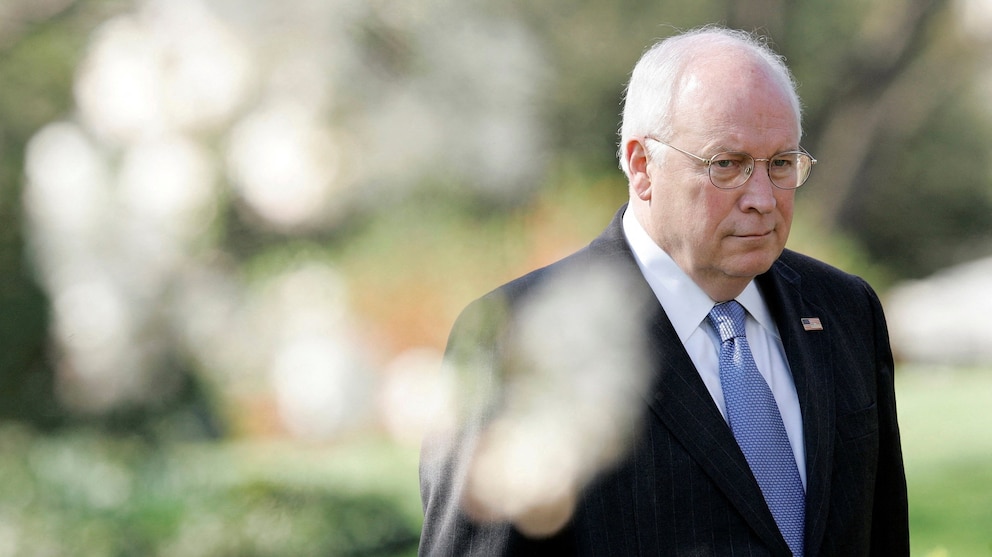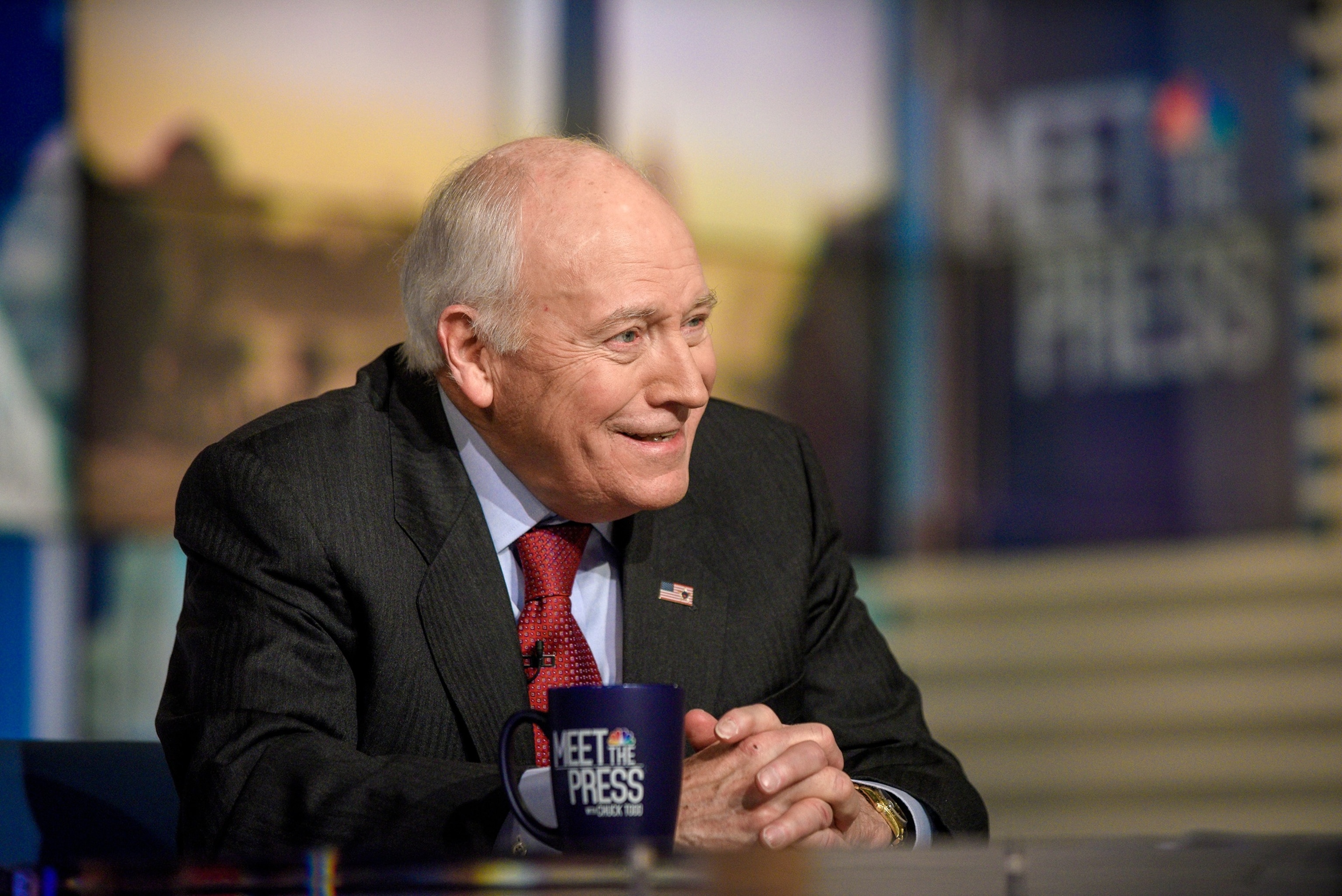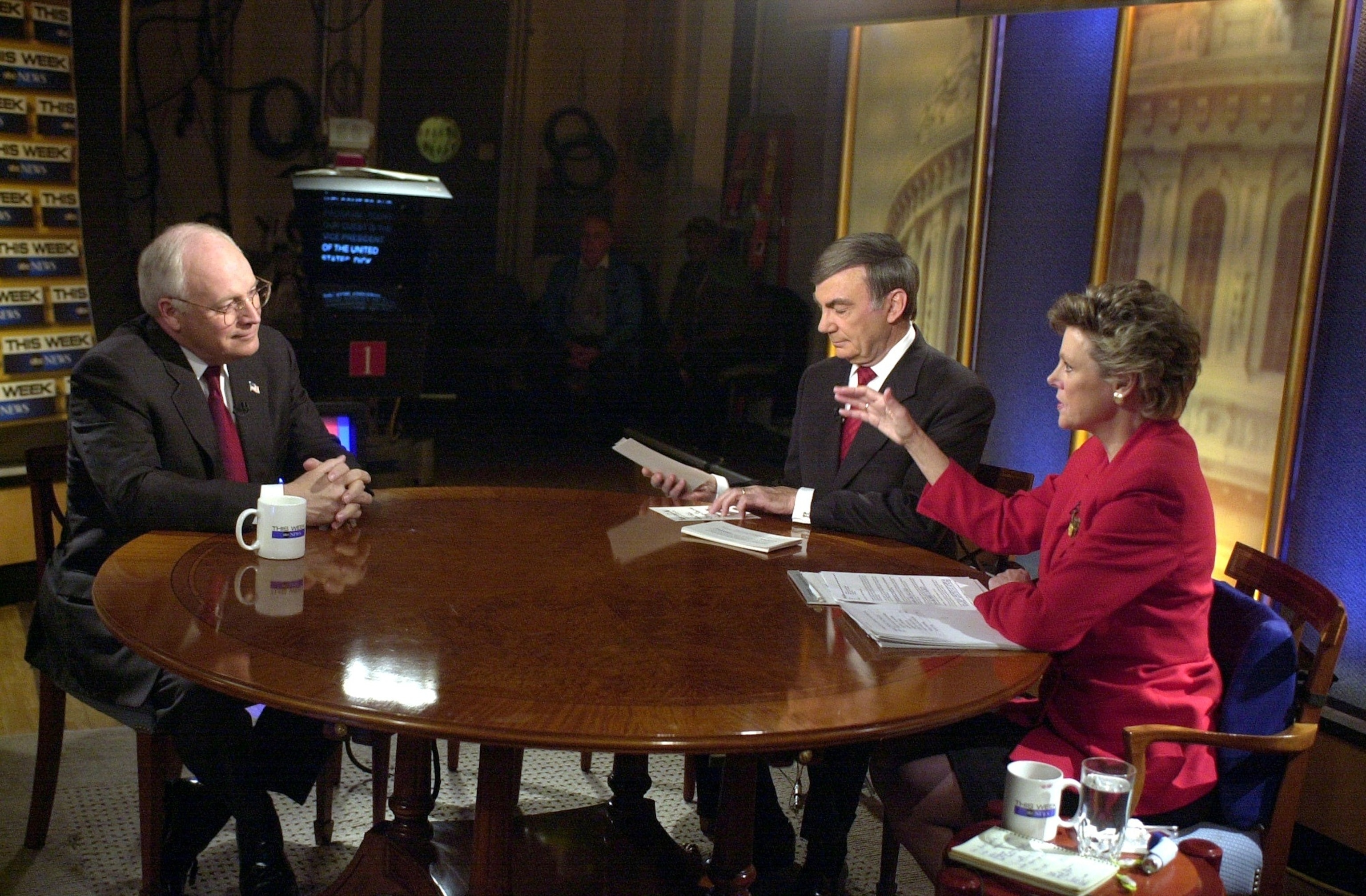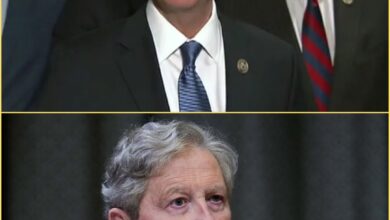LDN.Former Vice President Dick Cheney dead at 84.LDN
The former vice president was a key architect of the war on terror and Iraq war.

1:21
Vice President Dick Cheney listens to President George W. Bush make a statement about the war supplemental funding bill and then answer questions from the press in the Rose Garden at the White House in Washington April 3, 2007.
Larry Downing/Reuters
Former Vice President Dick Cheney, considered by many political observers to be the most politically active and influential vice president in U.S. history, died on Monday night, his family said. He was 84.
Cheney’s wife of 61 years, Lynne, his daughters, Liz and Mary, and other family members were with him on Monday night, the family said in a statement, adding that the former vice president died of complications of pneumonia and cardiac and vascular disease.
“Dick Cheney was a great and good man who taught his children and grandchildren to love our country, and to live lives of courage, honor, love, kindness, and fly fishing,” the statement said. “We are grateful beyond measure for all Dick Cheney did for our country. And we are blessed beyond measure to have loved and been loved by this noble giant of a man.”
Cheney worked for nearly four decades in Washington. He served as the youngest White House chief of staff under President Gerald Ford; represented Wyoming in the U.S. House of Representatives — where he worked with congressional leadership and President Ronald Reagan; was secretary of defense under President George H.W. Bush; and later served two terms as vice president under Bush’s son, President George W. Bush.

He was also CEO of Halliburton, an energy company based in Texas that had a global presence.
When terrorists attacked the United States on Sept. 11, 2001, it was Cheney who first took charge while the president was out of Washington.
“When the president came on the line, I told him that the Pentagon had been hit and urged him to stay away from Washington,” Cheney recalled in his memoir, “In My Time.” “The city was under attack, and the White House was a target. I understood that he didn’t want to appear to be on the run, but he shouldn’t be here until we knew more about what was going on.”
He and senior staff gathered at the Presidential Emergency Operations Center, where they monitored the horror unfolding.
“I stayed up into the morning hours thinking about what the attack meant and how we should respond,” Cheney wrote in his memoir. “We were in a new era and needed an entirely new strategy to keep America secure. The first war of the twenty-first century wouldn’t simply be a conflict of nation against nation, army against army. It would be first and foremost a war against terrorists who operated in the shadows, feared no deterrent, and would use any weapon they could get their hands on to destroy us.”
As vice president, Cheney was also known as the mastermind behind much of the Bush administration’s strategy in Iraq.

“His power is unparalleled in the history of the republic, frankly, for that position,” John Hulsman, a research fellow at The Heritage Foundation, a conservative Washington-based think tank, told ABC’s “Nightline” in 2005.
Cheney said he looked upon his role as vice president as being an adviser to the president.
“I don’t run anything, I’m not in charge of a department or a particular policy area and for me to be out all of the time commenting on the issues of the day — pontificating if you will — on what’s going on, to some extent infringes upon everybody else in the administration, especially with those specific people who have got specific responsibilities,” he told ABC News Chief Global Affairs Martha Raddatz in an interview in March 2008, when she was a White House correspondent.
And later, in the 2013 documentary “The World According to Dick Cheney,” the former vice president said, “Tell me what terrorist attacks you would have let go forward because you didn’t want to be a mean and nasty fellow. Are you going to trade the lives of a number of people because you want to preserve your honor, or are you going to do your job, do what’s required, first and foremost your responsibility is to safeguard the United States of America and the lives of its citizens.”
After his time in office ended, he remained politically active while former President George W. Bush had moved back to Texas and refrained from commenting on politics in an effort to avoid “undermining” the current president.
During President Barack Obama’s administration, Cheney emerged as an outspoken critic of the president’s national security policies — charging that Obama’s counterterrorism policies were making the country less safe.
“It has always been easy for those who are evil to kill, but now it is possible for a few to do so on an unimaginable scale,” Cheney wrote in his 2011 memoir.
“The key, I think, is to choose serious and vigilant leaders, to listen to the men and women who want us to entrust them with high office and judge whether they are saying what they think we want to hear or whether they have the larger cause of the country in mind,” he continued. “It’s not always easy to move beyond pleasing promises, but in the case of America, the greater good is so grand.”
Early life
Richard Bruce Cheney was born on Jan. 30, 1941, in Lincoln, Nebraska, to Richard Herbert Cheney, a U.S. soil-conservation agent, and Marjorie Lauraine Dickey Cheney.
When Cheney was 13, his father’s job took the family to Casper, Wyoming. There, Cheney played football and baseball, fished and hunted rabbits, according to his former U.S. Senate profile. In high school, he was the senior class president and co-captain of the football team. He also met and dated his future wife, Lynne Vincent, who happened to be the school’s homecoming queen.
What stood out most in Lynne Cheney’s mind was that Cheney “spent as much time listening as he did talking, which is pretty unusual in a teenager,” she’s quoted as saying in the Senate profile.
From Wyoming, he went to Yale University in 1959, having been recruited with a full scholarship. Poor grades cost him that scholarship and he returned to Wyoming after three semesters. He worked as a lineman for a power company, but was “headed down a bad road” after being twice arrested for driving while intoxicated, according to the Senate profile. His future wife, in the meantime, had graduated from college, gotten her master’s degree and made clear to Cheney that she expected him to return to college before they married.
